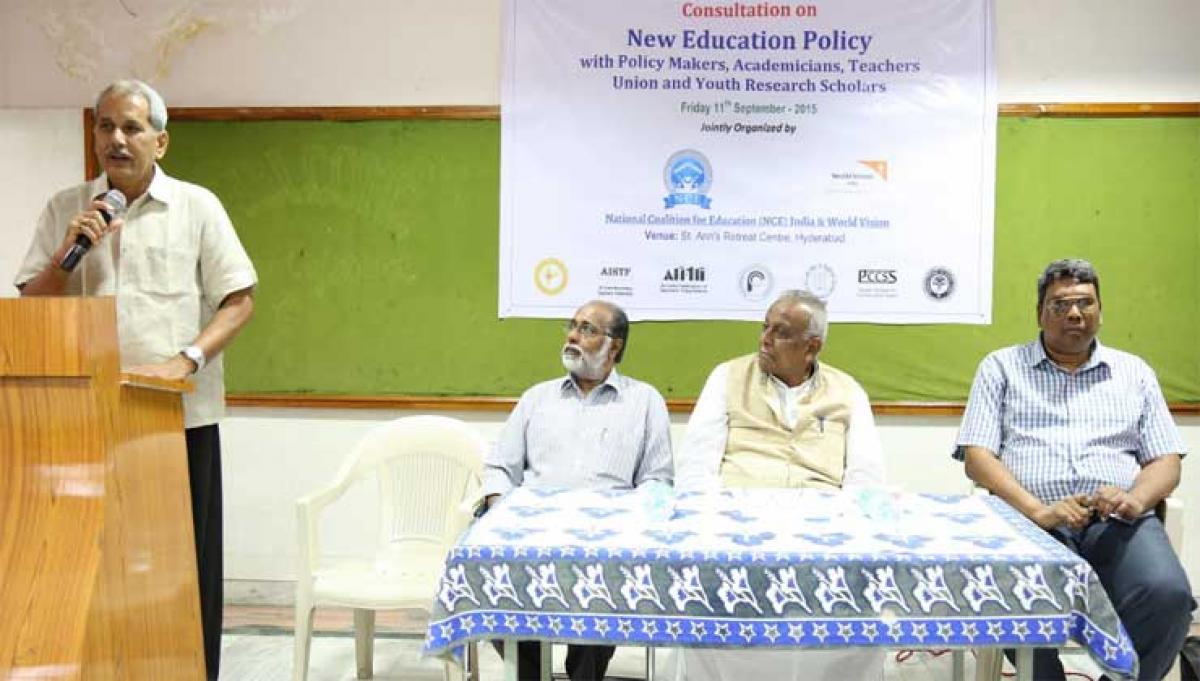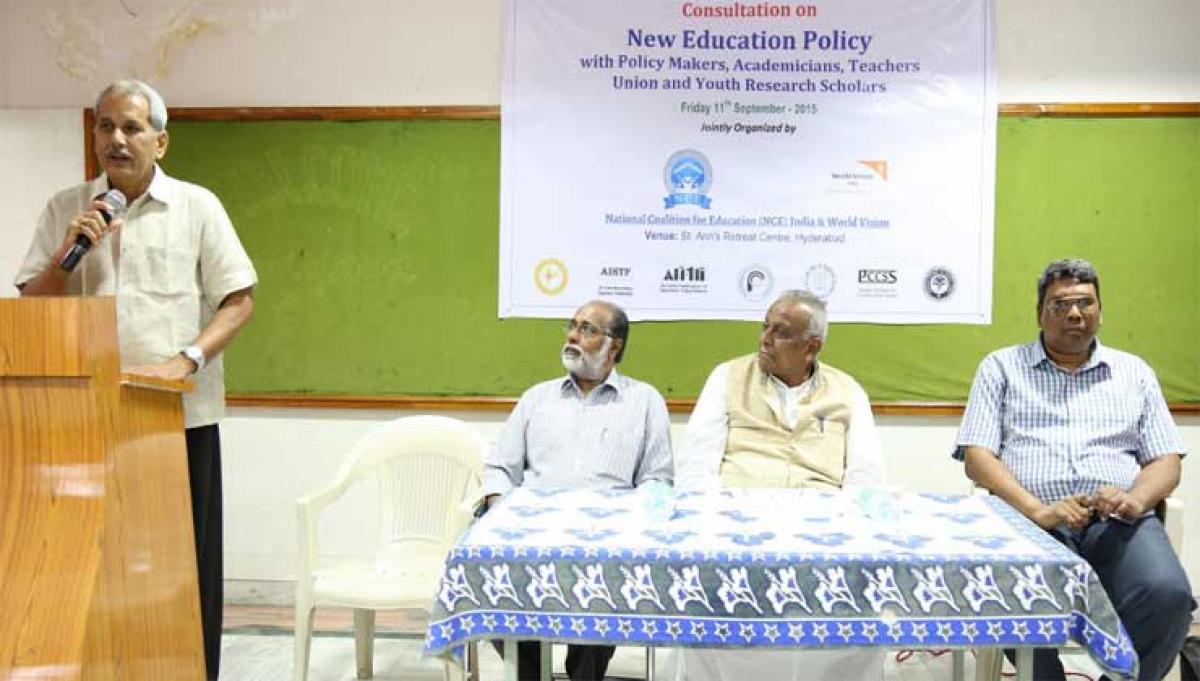Live
- Govt plans to establish offshore Johns Hopkins University Campus in India
- Goa Aces clinch Indian Racing League title
- Study finds how hormone therapy can reshape the skeleton
- High-street fashion players looking at India for manufacturing: Report
- Shreyas Iyer to lead Mumbai as Prithvi Shaw returns for Syed Mushtaq Ali Trophy
- 'Failed to resolve crisis': NPP withdraws support from BJP govt in Manipur
- Chennai: Actress Kasturi Remanded in Custody Until 29th of This Month
- Aaqib Javed likely to become Pakistan's new white-ball head coach
- BJP panel to draft poll charge sheet against AAP govt in Delhi
- Allu Arjun Thanks Fans in Patna, Teases 'Pushpa 2' Release
Just In

As the states still struggle to implement the RTE (Right to Education) Act, a consultation meet was held at the St Anne’s Retreat Centre in the city by World Vision India in collaboration with National Council for Education (NCE).
Hyderabad: As the states still struggle to implement the RTE (Right to Education) Act, a consultation meet was held at the St Anne’s Retreat Centre in the city by World Vision India in collaboration with National Council for Education (NCE). It was focused on the status of the implementation of RTE Act and the new education policy which had experts highlighting its risks.

They expressed that the RTE Act which came as a respite for the students from economically backward class has failed to see the light of the day. It’s been close to six years since the Right to Education Act (RTE) came into force, but the students in our country are still waiting to reap the benefits of this Act.
The educationists hope that their views will help shape the new Education Policy to be more comprehensive and address the issues related to quality education so students are eligible for an impartial one. Ramakant Rai, Convenor of the National Coalition for Education (NCE) underscored that the yardstick for quality education should not be on the basis of the child’s background.
He said, “The child’s background should not matter; every student is entitled to quality education. Another barrier here is that there are four kinds of schools under the RTE Act, so the quality of education varies. Alarmingly, we are among the lowest in BRICS countries, we are still at 3.6 % of the 6% GDP allotted for Education and we need to reach that mark.”
He highlighted the poor situation of education today adding that the government should give top priority to education, not just in words but it should reflect in their policies and budget allocations. “The focus should be on government schools, most of the schools lie in dilapidated conditions and lack proper infrastructure.
Government schools are shutting down while there is a surge in private schools; the government should ensure that all government schools are well-equipped to take in students, so that they are not left with the sole choice of going to private schools,” he opined. He pointed out that there are several factors affecting the education and the implementation of RTE act.
“India’s school system is affected by a range of factors, from inadequate budget being allotted for education to the failure of implementing the RTE Act. Private schools are not under the purview of the education policy of the state government. They are largely unregulated and effectively function beyond the scope of RTE in reality.
For this we have to bring in School Management Committees (SMCs), they act as key catalysts to boost government initiatives. These committees enhance community participation in the whole process of education, thereby strengthening the system for better functionality.”
According to UNESCO, 10 lakh children are out of school and this is definitely a reason to be concerned about says Reni Jacob, Advocacy Director of World Vision India. “The education policy needs to cover students from preschool till higher secondary. It needs to focus on the most vulnerable children who are out of school,” he added.

© 2024 Hyderabad Media House Limited/The Hans India. All rights reserved. Powered by hocalwire.com







